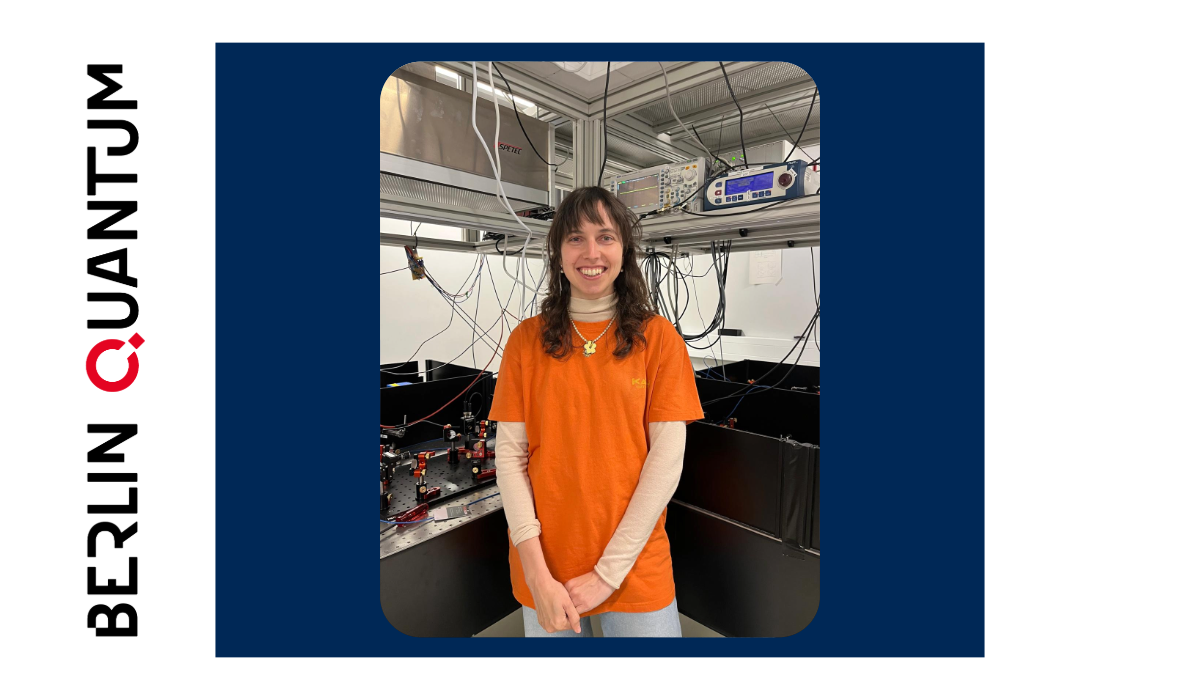What inspired you to pursue a career in quantum physics?
I’ve always found quantum physics both fascinating and challenging. It’s a field where the theory works incredibly well — it explains experiments with amazing accuracy — but at the same time, there are still big open questions. That mix really drew me in. I also find it exciting to be part of something that’s not just about understanding nature, but also about pushing new technologies forward.
Why did you choose to conduct your research in Berlin?
I chose to do my research in Berlin because it's a major international city with a lot of diversity, which I think is really important for science. Different backgrounds and perspectives can lead to more creative ideas and collaborations. Also, Berlin has a strong presence in quantum physics, especially quantum photonics, with many active research groups in the field.
Can you tell us about a current project or experiment you are working on?
I'm currently working on implementing a telecom single-photon source that operates at room temperature. The idea is to use weak interactions between classical light and atomic vapor to generate single photons. Single photons are a key resource for many quantum technologies, and telecom wavelengths are especially useful because they match existing optical fiber networks.
The broader goal of the project is to use atomic media — specifically room-temperature atomic vapor — to generate single photons or photon pairs. This builds on earlier work done in Prof. Arno Rauschenbeutel's group, where quantum light was produced using guided light in nanofibers interacting with laser-cooled atoms. Our aim now is to achieve similar quantum light generation, but with a simpler and more scalable setup that could bring us closer to practical applications and real-world integration.
How does BERLIN QUANTUM and the Berlin research landscape support your work, and which resources are particularly helpful?
BERLIN QUANTUM supports my work by connecting me with a wider network of researchers in quantum physics. It brings together both theorists and experimentalists, which helps create useful exchanges and potential collaborations. The events and meetings make it easier to hear about what others are working on and to stay connected with local research activities.
What role does collaboration with other scientists and institutions in Berlin play in your research?
Collaboration plays an important role in our project. We work closely with Prof. Leonid Yatsenko from the National Academy of Sciences of Ukraine, who is currently a guest researcher in our group. Leonid brings deep theoretical expertise to the project and has been a valuable source of insight and guidance.
We also collaborate with Prof. Tobias Heindel’s group at TU Berlin, who specialize in quantum cryptography. Their team is particularly interested in applying our telecom single-photon source for quantum key distribution.
How does living in Berlin influence your personal and professional development?
I really enjoy living in Berlin. I moved here from Haifa, Israel to start my PhD, and I feel that I've grown a lot — both personally and professionally. I'm now in my second postdoc, and even though all the groups I've worked in focus on quantum physics, the topics have been quite different. This has allowed me to gain a broad range of experience while staying in the same city.
On a personal level, Berlin has so much to offer. The mix of cultures, art, and people creates a very open and inspiring atmosphere. There are always opportunities to explore new things, which makes it a great place for both research and personal growth.
In your opinion, what are the most exciting developments or trends in quantum physics that we can expect in the coming years?
Quantum computers tend to get most of the media attention, and it’s exciting to see steady progress in increasing the number of logical qubits and improving error correction. However, what's often less highlighted — but equally important — is the development of quantum communication, which will serve as the backbone for connecting quantum devices and enabling secure information transfer.
From my perspective and area of expertise, one of the most exciting developments is the evolution of single-photon sources. They are a key resource for many quantum technologies, including quantum communication and cryptography. I’m particularly interested in how these sources are becoming more efficient, scalable, and compatible with existing infrastructure, which will be essential for practical applications in the near future.
What advice would you give to young scientists who aspire to a career in quantum physics and might consider coming to Berlin?
I think Berlin is a great place to start a career in science. There's a large scientific community here, with people from many different backgrounds and disciplines. It's quite international and, compared to other major cities, still relatively affordable, which makes it accessible for young scientists.
My advice would be to be prepared for the ups and downs that come with working in science. Research can be challenging, and setbacks are part of the journey. But Berlin has a way of lifting your spirits when things get tough. Its vibrant mix of cultures, arts, and open-mindedness makes it an inspiring place to recharge outside the lab.
It's also important to remember what you enjoy about science and to find a research group where you feel a good connection with the people. Science is inherently collaborative, and being part of a team where you feel supported can make a significant difference.
Connect with Dr. Inna Kviatkovsky on LinkedIn.

